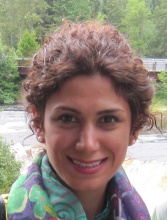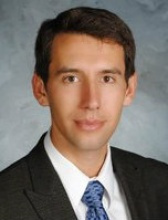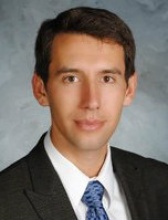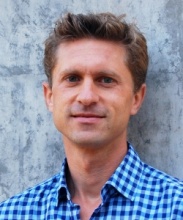CPS Events
Position Navigation and Timing (PNT) Vulnerability: Challenges and Solutions
Abstract
Position Navigation and Timing (PNT) have become ubiquitous, almost entirely based on Global Navigation Satellite Systems (GNSS) such as the US Global Positioning System (GPS). In all of these systems, the "P" and "N" systems are based on the "T", timing. Yet these systems are extremely vulnerable to intentional and unintentional interference. The US Department of Homeland Security (DHS) is releasing a Resilient PNT Conformance Framework, which defines four levels of resilience. But it does not say how a system can be shown to conform to any of these levels.
This talk has two focuses: how timing can be made more resilient with ensembling, and how one might begin to test a system to determine which level of resilience that system conforms to. Creating an ensemble with clocks has a number of advantages, though there is a cost as well. A clock as a timing source for a system can receive the support of the other clocks if it is a member of an ensemble, where it is continuously compared to the other clocks in the ensemble. This can increase the stability and reliability of any one clock. The cost, however, is there must be a method of continuous clock comparison, which has more strict requirements than those of general data networking. Ensembling also relates to PNT resilience, as a clock in an ensemble can detect spoofing more easily as well as obtain the time from the other clocks in the ensemble if the GNSS receiver is jammed, preventing access to time from GNSS.
We discuss the relationship and the status of these two issues: clock ensembling and PNT resilience. We then outline a number of interesting related research areas.
Bio
Dr. Weiss worked at the NIST Time and Frequency Division from 1979 through 2013. He has since been a consultant on precision timing systems for NIST and for various companies. He received several awards during his tenure at NIST. Also, he led the NIST program to support the GPS program office in developing their clocks and timing systems. In 1992, Dr. Weiss founded and has continued to lead the Workshop on Synchronization and Timing Systems (WSTS), now the premier conference on timing and synchronization in industry. In April, 2019, Dr. Weiss was awarded the Marcel Ecabert Lifetime Achievement Award “For his key contributions to remote clock comparisons, to time scale algorithm development and to accurate synchronization for science and industry.”
Radiation Detectors: Cyber-Physical Systems
Abstract:
In this talk, I will discuss advances in radiation detection and readout electronics being developed at the Radiological Instrumentation Laboratory at the University of California, Santa Cruz, and software algorithms that enable high temporal and spatial resolution performance in radiation detection. I will present two different applications of anomaly detection in security and nuclear medicine and seek areas of collaboration within the CPSRC.
Bio:
Shiva Abbaszadeh is an Assistant Professor at the University of California, Santa Cruz (UCSC) in the Electrical and Computer Engineering Department. Dr. Abbaszadeh’s lab at UCSC develops tools for anomaly detection in nonproliferation and improving cancer diagnosis and treatment. Dr. Abbaszadeh has been awarded a $2M NIH grant for advancing positron emission tomography in head and neck cancer and a $0.5M DOD grant for a feasibility study of large-area UV photodetectors.
Closing the Gap between Heuristic Algorithms and Optimal Control
Abstract:
Motion planning is a well-studied and important problem in robotic automation. Interestingly, it has been addressed by the computational geometry and control systems community almost independently over the last two decades. In this talk I'll present an overview of the various approaches to robot motion planning as well as some of the popular ideas and techniques taken from both academic communities. In doing so, we'll uncover a remarkable mathematical connection between seemingly distinct approaches to the problem that helps to bring existing ideas together to solve important automation problems.
Bio:
Brian Paden received his B.S. and M.S. degrees in Mechanical Engineering in 2011 and 2013 respectively from UC Santa Barbara followed by a Ph.D. in Robotics from MIT in 2017. His research interests include optimal control, convex optimization, and software engineering in robotics applications. During his graduate studies he was affiliated with UCSB’s Center for Control, Dynamical Systems, and Computation and MIT’s Laboratory for Information and Decision Systems. He is presently a staff robotics engineer with Samsung’s Strategy and Innovation Center (SSIC). In 2018 he was awarded SSIC’s inventor of the year and was also a co-author on a paper awarded Best Paper at the IEEE International Conference on Automation Science and Engineering.
Closing the Gap between Heuristic Algorithms and Optimal Control
Abstract:
Motion planning is a well-studied and important problem in robotic automation. Interestingly, it has been addressed by the computational geometry and control systems community almost independently over the last two decades. In this talk I'll present an overview of the various approaches to robot motion planning as well as some of the popular ideas and techniques taken from both academic communities. In doing so, we'll uncover a remarkable mathematical connection between seemingly distinct approaches to the problem that helps to bring existing ideas together to solve important automation problems.
Bio:
Brian Paden received his B.S. and M.S. degrees in Mechanical Engineering in 2011 and 2013 respectively from UC Santa Barbara followed by a Ph.D. in Robotics from MIT in 2017. His research interests include optimal control, convex optimization, and software engineering in robotics applications. During his graduate studies he was affiliated with UCSB’s Center for Control, Dynamical Systems, and Computation and MIT’s Laboratory for Information and Decision Systems. He is presently a staff robotics engineer with Samsung’s Strategy and Innovation Center (SSIC). In 2018 he was awarded SSIC’s inventor of the year and was also a co-author on a paper awarded Best Paper at the IEEE International Conference on Automation Science and Engineering.
Microarchitectural Analysis and Optimization of Datacenter Workloads
Abstract:
Data centers represent the nucleus of online activity and today represent over 25% of the overall microprocessor market. Data centersnow process a large number of worldwide compute cycles and areresponsible for a significant fraction of the planet's energyconsumption. As a result, improving the efficiency and performance ofdata center processors only by a single percent leads to billions ofdollars savings for cloud providers and their customers. Existingprocessors have been designed for traditional server applications andhence have not been optimized for contemporary Hyperscale workloads.In this talk, we will present an analysis of data center workloadsbased on a new cluster-wide profiling mechanism named AsmDB. We showhow AsmDB can be used to determine performance bottlenecks and presentnew prefetching techniques to improve the performance and efficiencyof the studied data center workloads.
Bio:
Heiner Litz is an Assistant Professor at the University of California,Santa Cruz working in the field of Computer Architecture and Systems.His research focuses on Data Center systems, in particular, onimproving the performance, cost, utilization, and efficiency of largedistributed computer systems. Before joining UCSC, Heiner Litz was aresearcher at Google and a Postdoctoral Research Fellow at StanfordUniversity. Dr. Litz received his MSc and Ph.D. from the University ofMannheim, Germany.






